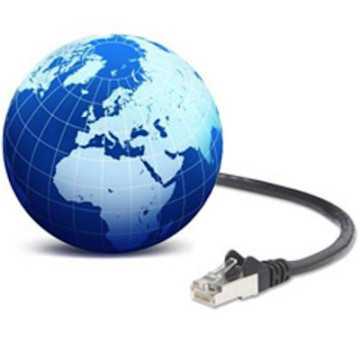MINDSETTER™Artigas: What Has Happened to Our Sense of Community?
Sunday, June 19, 2016
The rise of a virulent streak of self-indulgence is not exactly breaking news. A steady stream of commentary on this topic has overspread the public square for some years now, usually accompanied by varying degrees of dismay. An egocentric worldview, normally outgrown during childhood, is detrimental in many respects, not the least of which are intolerance and incivility toward others. It is the polar opposite of a sense of community. Various explanations for this trend have been advanced- the anonymity of the Internet, the "everyone gets a trophy" mindset, or the idea of an award for merely showing up, just to name three.
All these and more likely contribute to this new age of narcissism, but another factor not commonly mentioned may well be the explosive growth and sophistication of targeted and pervasive mass marketing. Marketing, the attempt to persuade someone to buy something he might not otherwise purchase, has undergone substantial refinement since the 1950's when the US and the world economies began recovering from World War II. However, it is only in the last 15- 20 years, fed by ubiquitous mountains of personal information, instantly accessible online, that the marketers' effectiveness has reached its zenith.
In that context, the most effective catchphrase ever created could be this: "You are a good person. You work hard, and you deserve..." Well, you fill in the blank. This blatant appeal to ego, along with its less overt permutations, reveals a cunning sense of genius. After all, who sees himself as a bad person, one who doesn't work particularly hard and isn't deserving of whatever has caught his eye? While the use of flattery is by no means new, this turn of phrase appears to be devastatingly successful, and may be an unrecognized contributing factor in nurturing feelings of individual primacy at the expense of the greater good. These are opposites and cannot co-exist without some degree of balance.
That well-received message, repeated often enough, eventually convinces targeted potential customers to define their self-esteem based on what they have acquired, rather than their accomplishments or strength of character. "What, you're still driving that old heap? wearing last year's clothes? You deserve better!" It's then a short mental hop from deserving to entitled- it's OK to be selfish. A little piece of the Leona Helmsley attitude creeps in- you really expect me to wait in line? This marketing approach is so successful that people are willing to spend themselves into financial distress to advance their sense of self-worth. And since this evaluation is based on comparisons to others, it's a zero-sum game- my gain is your loss.
If we carry this a step further, when we start feeling a little smug our sense of community might begin to fray. We no longer feel quite as connected to those who are less well accoutered. We may feel less guilty about cutting off that other driver in traffic. Some psychologist may even tease out a connection between anonymous bellicosity on an Internet chat room and the self-indulgent attitudes that have become so widespread. And it's not difficult to assign part of the blame for the boorishness so prominent in contemporary public discourse to that same wave of marketing-driven superiority- and civility takes a back seat.
Steven Artigas: I am some years' retired from 40 years as a self-employed building contractor in RI. I have lived my entire life here and despair to see the results of decades of short-sighted leadership in our state. It is time that voices are heard on behalf of the million or so of us who lack connections in the state hierarchy.
Related Articles
- Guest MINDSETTER™ Steven Artigas: Time to Disable the Cellphones
- Guest MINDSETTER™ Steven Artigas: Open Letter to Gordon Fox
- Guest MINDSETTER™ Steven Artigas – Skeffington’s Secrets



